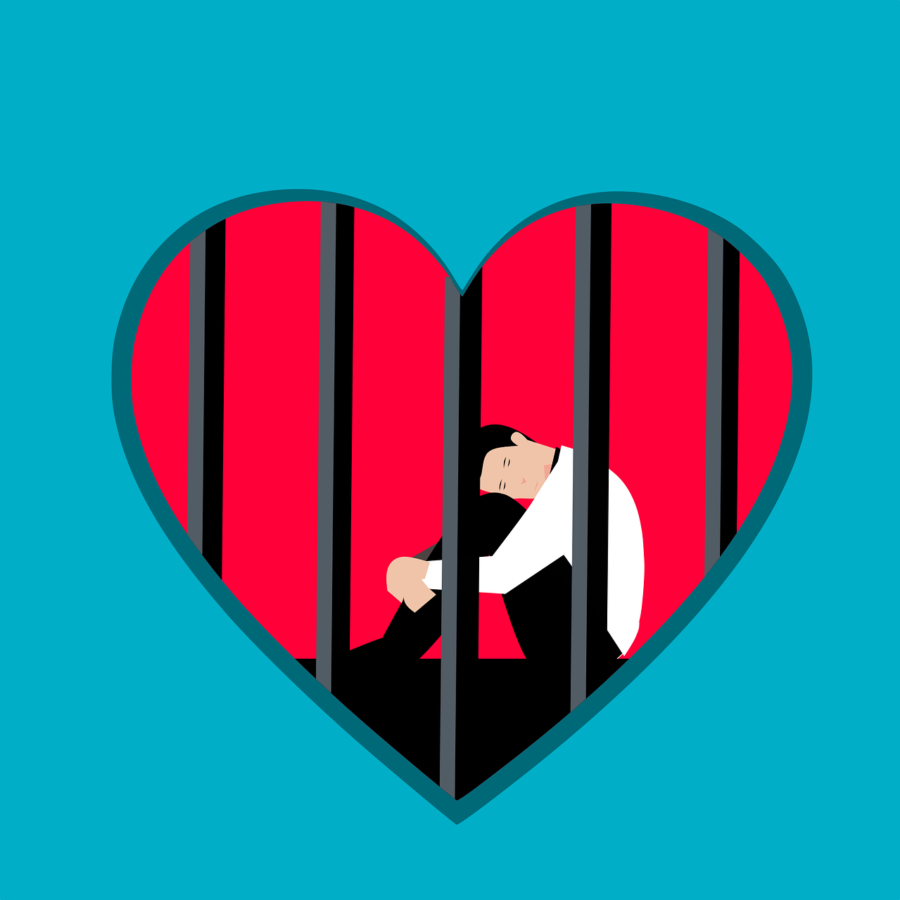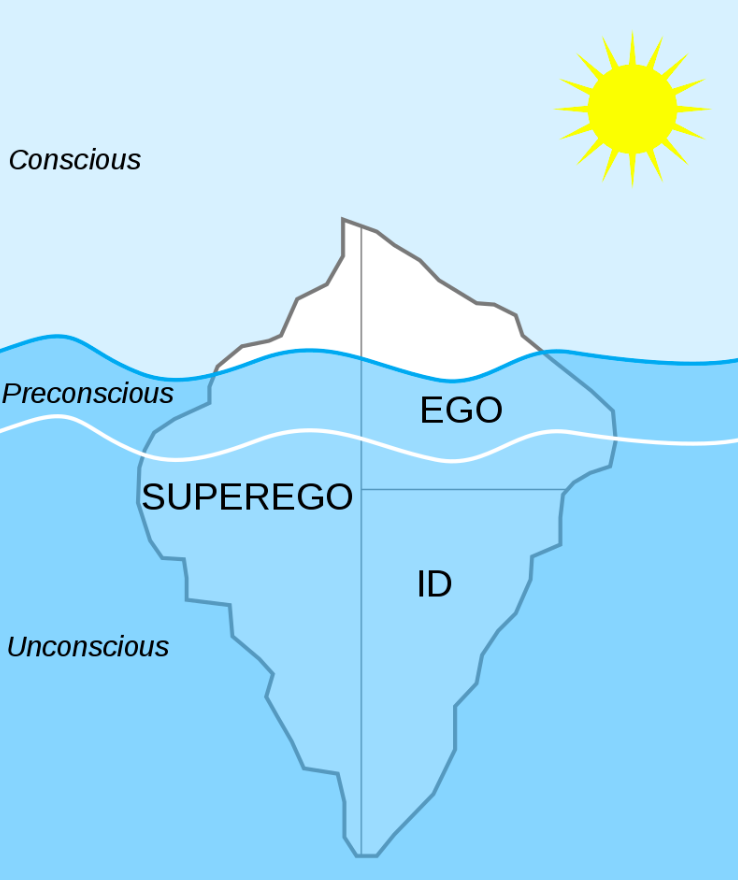
Do you find yourself making excuses not to do something? Do you avoid social situations or not allow yourself to relax and enjoy social events if you do go?
This avoidant nature could be a fear of criticism. [1]
Criticism used to come up to me a lot in my life. It made me defensive, avoidant and irritable. I would ruminate over conversations and, basically, wind myself up all over again.
Criticism can be hard to take. However, it’s only hard to take if you lack self-esteem and have a fragile self-image. This is common in people that carry anxiety.
Fortunately, I developed effective strategies that enabled me to deal with criticism. They are essentially mindset strategies, but building confidence and self-esteem plays a key role as well.
If you’re living with anxiety and depression, developing an inner sense of security is something you should be doing.

But despite overcoming anxiety and depression, criticism continued to surface from the unconscious quite frequently. An imaginary role-play would play out in my head in which I was having to defend myself in a courtroom before a judge.
Fortunately, I’ve got more control over the fear of criticism and don’t let it hold me back so much. Although I still have my moments (thanks to social media).
But up until about a couple of years ago, I had criticism anxiety. And that prevented me from getting to where I was to where I wanted to be.
I simply didn’t even try to move forward and kept making excuses why I couldn’t. And none of the excuses was an admission of fear, by the way.
Fear of criticism, or “criticism anxiety” is an irrational and excessive fear of being judged, evaluated, or criticised by others. People who have this fear may feel extremely anxious, insecure, and vulnerable when they receive criticism or negative feedback, even if it is constructive or well-intentioned.
The fear of criticism can lead to a number of negative consequences, such as avoidance of social situations, difficulty expressing oneself, low self-esteem, and feelings of isolation and loneliness.
It can also hinder personal and professional growth, as individuals may avoid taking risks or trying new things in order to avoid potential criticism. It can even invite depressive moods and insomnia. [2]
The toxic nature of social media — and mainstream media in general — can enhance criticism anxiety. It seems increasingly more difficult to share thoughts and opinions without receiving criticism or negative feedback.

Like many of us, I used to find criticism challenging. Now I realise that you can’t please everyone because we see the world in different ways. Our opinions can only be based on the information we have been exposed to. When you are confronted with an audience as large and diverse as social media platforms, it will naturally throw up a variety of opinions.
That doesn’t excuse social media users from being rude and mainstream media from being ignorant. But that’s another matter.
And if you’re posting hurtful and aggressive comments on social media anonymously, you’ve got a serious problem you should take a look at. It’s not other people you hate, it’s yourself.
And that’s sad.
Fear of criticism can also develop into avoidant personality disorder (AVPD). This condition is characterised by a hypersensitivity to criticism or rejection which prompts pervasive patterns of social inhibition.
People with AVPD often have low self-esteem which causes difficulty forming close relationships. They often feel inadequate or inferior to others and confess to being socially incompetent.

The overriding fear of AVPD is being ridiculed, humiliated disliked, rejected, embarrassed or unappealing. They are often reluctant to talk about themselves or reveal their likes and interests for fear they will be mocked or have their opinion shot down. [3]
They may also worry that their social incompetence will make them feel like a fool. So to avoid negative experiences, they avoid situations that potentially invite negative feelings. [4] Ibid
The psychological causes of criticism anxiety can be complex and multifaceted. Most people will develop pain towards criticism in early childhood, but criticism anxiety can emerge at any point in a person’s life if their self-esteem becomes eroded.
When a person is criticised often enough, rejection and feelings of inadequacy can create a sense of vulnerability and low self-esteem. You can easily see how the school system instils criticism anxiety in the population from the age of six.
Social conditioning and cultural expectations can influence how individuals perceive criticism and feedback. Negative thinking patterns, such as perfectionism, can make individuals more susceptible to criticism anxiety.
These biases can create a sense of pressure to perform perfectly and can cause individuals to view feedback as a personal attack rather than an opportunity for growth.
Children that develop criticism disorders naturally become defensive when they are mocked and humiliated by their peers — particularly in adolescence when young adults are becoming more conscious of their self-image.

The experience of rejection can also make people feel marginalised. This is accentuated in children that were emotionally neglected during their early years. Abandonment issues will persist until they are addressed.
The fear of criticism is associated with the Creator archetype — also known as the artist. In the archetypal world, as in the real world, open themselves up to criticism.
When a fear of criticism prevents you from moving forward you are not creating anything in your life other than stagnation. The flow of life comes to a standstill.
Stagnation, or the lack of growth or progress, can have a negative impact on your mental health. Feelings of worthlessness escalate when you feel as though you are not making progress towards your goals or living up to your potential.
As you will learn in the Master Mind Content Anxiety & Depression Program, a lack of self-worth is a major contributor to anxiety and depression. The feeling of worthlessness is amplified if you don’t have purpose and meaning in your life.

Criticism anxiety developed in childhood is, therefore, a precursor to debilitating anxiety and depression in adults. I first noticed my anxiety at 14 (although didn’t know it was anxiety at the time). The likelihood is that anxiety had been lurking underneath for several years before it made itself known on the surface.
Anxiety is a warning sign that you are not developing a conscious personality that is healthy, vibrant and enjoying life. Anxiety shows you that you are afraid to live because you don’t know how to live.
Developing your Creator archetype can help you to overcome the fear of criticism — and in doing build confidence and develop your lack of self-worth.
How you handle criticism from the external world is all a matter of mindset. If you are prone to self-criticism, that’s an entirely different address altogether, which I will come on to in the next section.
Here are several mindset strategies that you can use to overcome the fear of criticism and move forward with confidence:
Not all criticism is justified. Sometimes people criticise others because they want to cause emotional pain. But all they are doing is projecting their pain onto you. Ignore hurtful criticism and see it for what it is — a reflection of the criticiser’s own weaknesses. Feel compassion for the purpose, not pain.
Other times, criticism is invalid, unnecessary and disrespectful. Again, this can be a projection but is often due to ignorance. As Carl Jung pointed out, some people base their opinions on judgements they haven’t internalised and thought through. Opinions are largely based on information we absorb from our environment. [5]

Then there are other times when the criticism is valid. In these circumstances, use criticism as fuel to learn and grow. Which could be as simple as chaining your attitude or mindset towards something. Pretty much as I am describing in this section.
Let me put it this way, if you are being triggered by criticism you receive on social media, you’re doing yourself more emotional harm than the other person is probably intending to. They are either weak-minded, wounded or need educating in the art of diplomacy and communication.
A simple mindset change will protect you from feeling hurt, but can also help you to learn and grow. So evaluate whether the criticism is justified and choose who you are prepared to accept constructive criticism from.
The reframing tool in the Master Mind Content Anxiety & Development Program can be a useful strategy to overcome a fear of criticism. As mentioned above, viewing criticism as an opportunity to receive feedback and improve can have positive outcomes. But also recognising that other people may be projecting prevents you from taking criticism personally.
When you know your Truth, you are clear on what is important to you, what you believe is right, and what you want to achieve. Keep faith in your Truth and focus on your values and goals. When you can do this, criticism becomes less important.
Don’t let fear of criticism hold you back from taking action towards your goals. Take small steps, and don’t be afraid to make mistakes or face criticism. The mindset strategies above will help with that. Plus, the more you practice something, the better you get. Then you start receiving praise.
Whether you made a mistake or you’re habitually self-critical, try not to be too hard on yourself. First of all, it’s okay to make mistakes. Secondly, making mistakes gives us the opportunity to grow.
As Thomas Edison noted when during his quest to make the light bulb:
“I have not failed 10,000 times—I’ve successfully found 10,000 ways that will not work.”
~ Thomas Edison
If you do make a mistake, treat yourself with the same compassion and understanding you would give to a friend. Don’t allow your superego to indulge in negative talk.
It’s also important to note that self-compassion is not about being self-indulgent and blindly positive to dismissive of criticism. Self-compassion involves treating yourself with respect—the same respect you would show to a friend without a second moments thought.
If you can do this for a friend, why not do it for yourself?
If you are self-critical, there could be another reason. Self-criticism may not simply be a “habit” you have picked up from your parents or “inherited in your genes.”
Let’s go back to my mental role-play. The judge.
When I was under the control of my inner critic, it would always be a judge I was appealing to. Ultimately, this is an archetypal fantasy showing me that I am not in control of my own destiny because I am allowing the fear of criticism to hold me back.
Fear of criticism puts your future in jeopardy. A judge in real life, after all, is the decision maker that has control over somebody’s future. For me, the courtroom would be a scary place to be.
A judge is also an authority figure, which in archetypal terms relates to the Ruler. The Ruler can be hypercritical — just like Sigmund Freud’s superego. In Freud’s model of the psyche, the Superego comes into conscious awareness.

And sure enough, the Ruler is the Self-ego axis. Another way of looking at the judge is self-criticism. The Self is not happy with the choices the ego has been making — which also means the ego has power over the Self.
It should be the other way around. When you allow your ego to make all your life choices, the unconscious aspect of your nature, will in Jung’s words “rebel”.
An archetype in rebellion can be problematic.
“There is an autonomous inner directiveness, separate from the ego and often antagonistic to it. Such an awareness is sometimes releasing and sometimes exceedingly burdensome.” [6]
~ Edward Edinger, Ego and Archetype
I later adapted this scene to a role-play I had more control over. Or more precisely, my unconscious brought up a new scenario for me to consider.
In this new scenario, I am being interviewed by a mainstream media journalist who is criticising my view of the world. Alongside her is an “expert” condemning my ideas.
But as the conversation goes on — through active imagination — I recognise that the “expert” does not have any ideas of their own and their worldview is narrow.
This is my Creator archetype informing me to stay true to what I believe and not to be persuaded by other people’s opinions or criticism. When you know your own Truth, it is easy to accept that other people are entitled to their opinion, simply because they see the world from a different perspective.
And that’s what the fear of criticism essentially boils down to. It’s your perception of what other people think of you and your opinions.
Never take criticism personally. At least try not to. Adopt the mindset that all criticism is an opportunity to improve yourself or broaden your perspective on a topic.
Otherwise, criticism is merely a projection or a matter of opinion. Neither is worth getting upset over.
Your only consideration should be who you choose to accept criticism from. And if the Self is the criticising agent, take a close look at whether the life choices you are making are in the best interests of your health or helping you to move positively towards your intention.
I have first-hand experience in overcoming anxiety, depression and a fear of criticism and want to share the tools I developed with you. The Master Mind Content Anxiety & Depression Program helps you to identify archetypes and determine which energies you are ignoring. These tools enable you to successfully emerge feeling stronger, positive and at peace with yourself.

[1] Avoidant Personality Disorder — ScienceDirect
[3] Avoidant Personality Disorder, Mark Zimmerman, MSD Manual (2022)
[4] Ibid
[5] Carl Jung, CW6, Psychological Types, p.453, (1923)
[6] Edward Edinger, Ego and Archetype, p.97 (1992)
